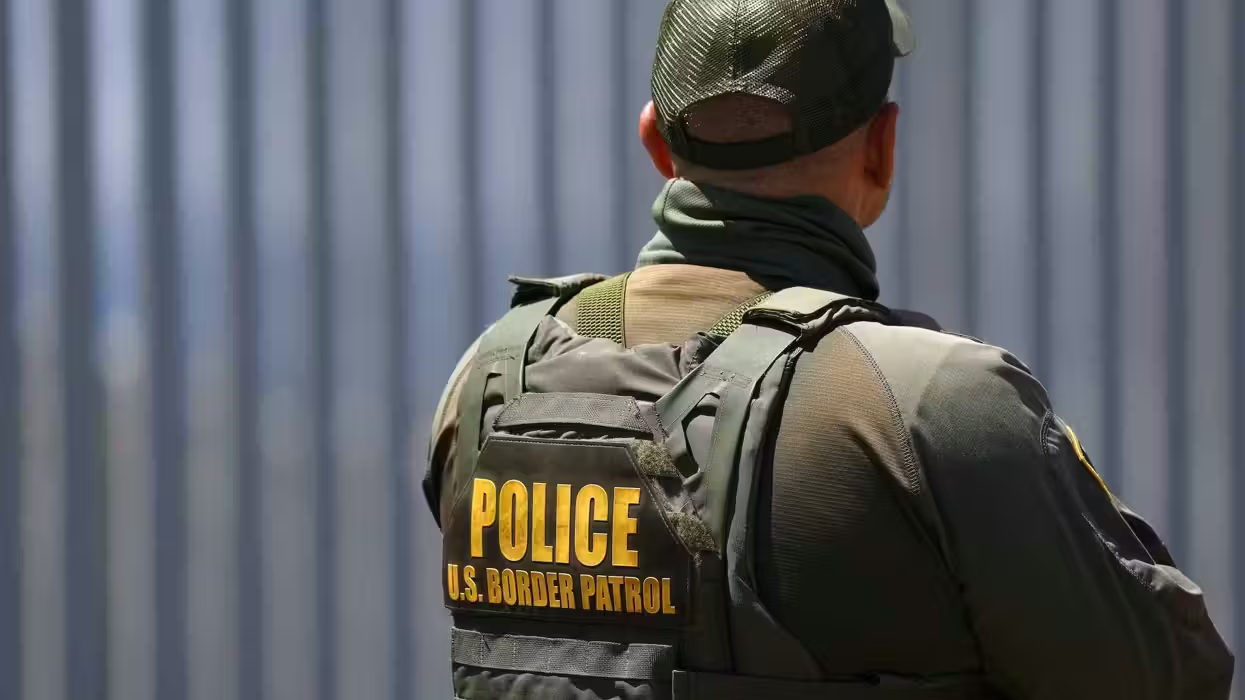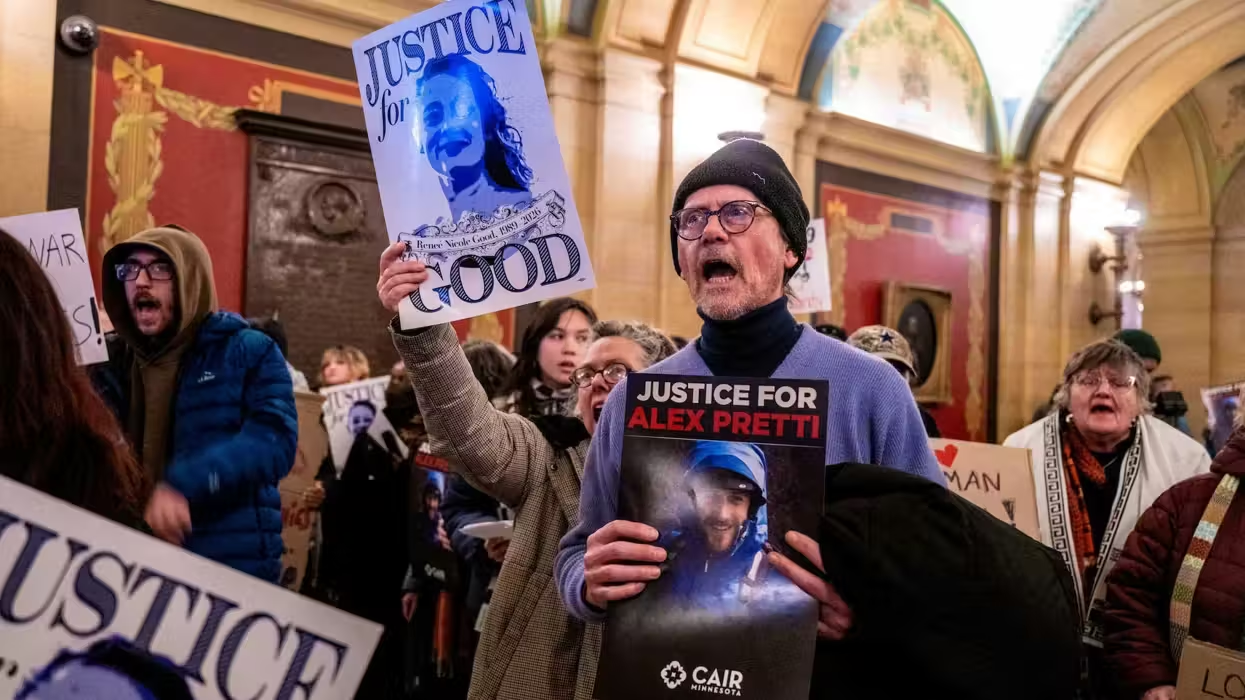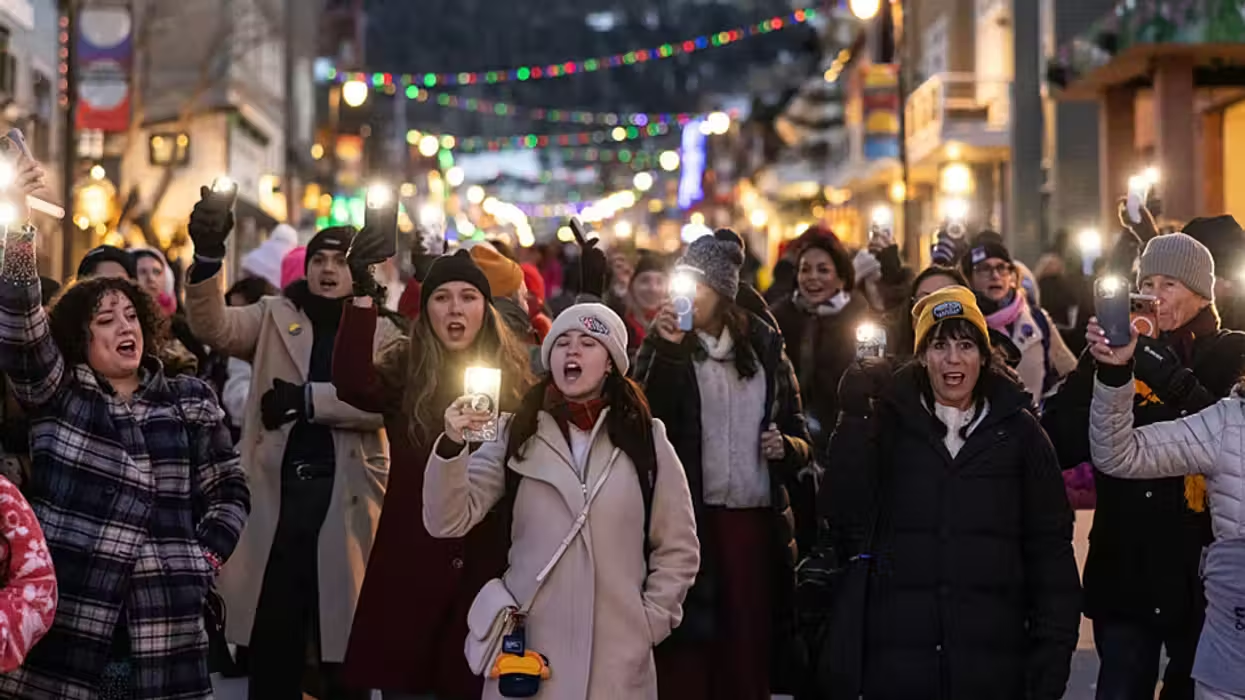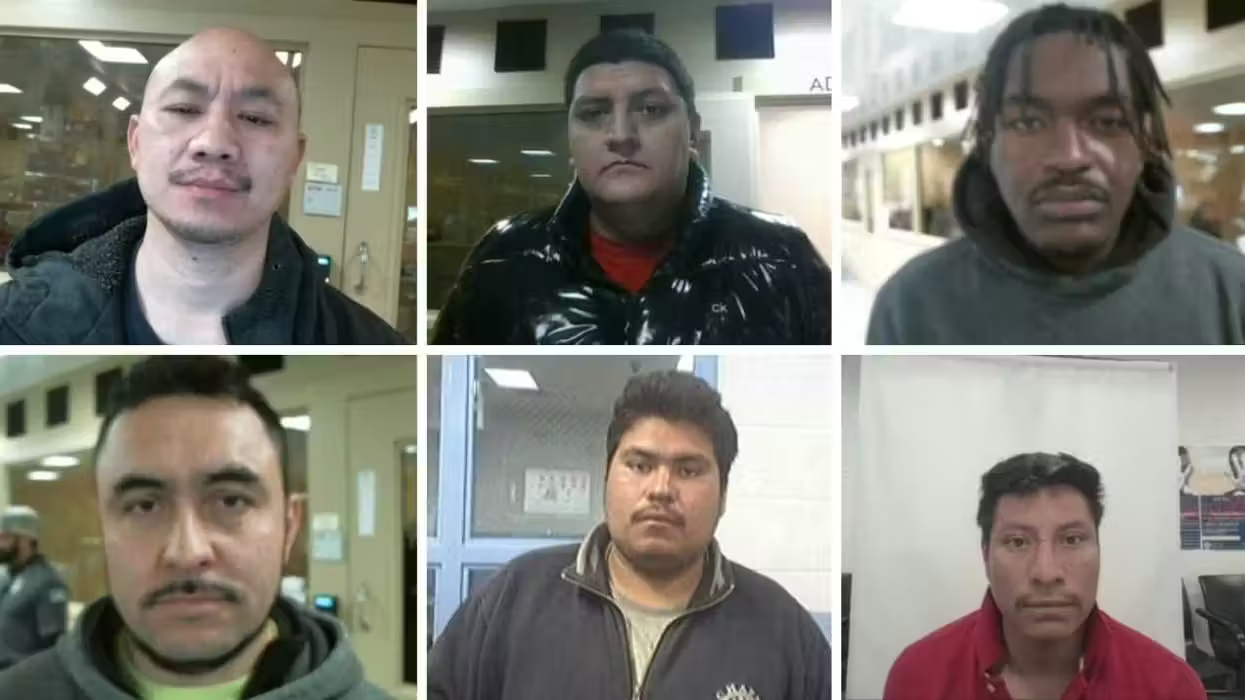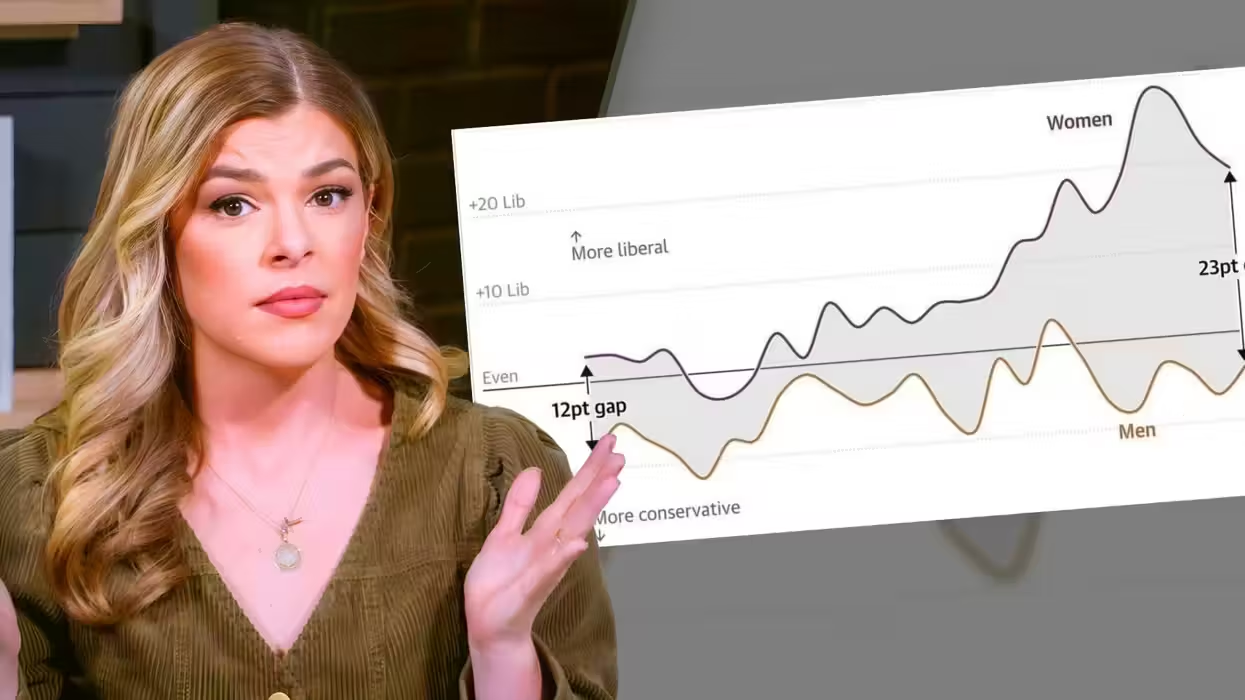
© 2026 Blaze Media LLC. All rights reserved.
Advent celebrates the hope of Christmas. The hope is that God’s love provided a way to redeem a fallen humanity. Even through the devastation of Newtown, there’s still the hope of Christmas.
 Newtown residents Claire Swanson, Kate Suba, Jaden Albrecht, Simran Chand and New London, Connecticut residents Rachel Pullen and her son Landon DeCecco, hold candles at a memorial for victims on the first Sunday following the mass shooting at Sandy Hook Elementary School on December 16, 2012 in Newtown, Connecticut. (Photo: Getty Images)
Newtown residents Claire Swanson, Kate Suba, Jaden Albrecht, Simran Chand and New London, Connecticut residents Rachel Pullen and her son Landon DeCecco, hold candles at a memorial for victims on the first Sunday following the mass shooting at Sandy Hook Elementary School on December 16, 2012 in Newtown, Connecticut. (Photo: Getty Images)
It was 7:00 a.m. on a Friday, when six members of my men’s Bible study gathered at a local coffee shop to study Paul’s letter to the Romans. As we sipped coffee on what was to be a warm, late autumn day in Tuscaloosa, Ala.—a thousand miles north in Newtown, Conn.—Adam Lanza, having murdered his mother, was breaking through the locked door of an unsuspecting elementary school. While we juxtaposed God’s righteousness with the devastating results of human disobedience and depravity, Lanza unleashed his wrath on 26 innocent people, including 20 children six and seven years of age.
Some children reportedly were shot 11 times. Back at the coffee shop, oblivious to the unfolding horror, we explored the vast chasm between God’s righteousness and human sinfulness. Our pastor pointed out that the Greek words for “righteousness” and “justice” are identical. God’s justice reflects his righteousness.
I heard the first reports of the slaughter just after noon while driving to a pre-school to pick up my four-year old granddaughter. With granddaughter secure in her car seat, we skipped the usual haggling over whether we listen to Rush Limbaugh or play her Lion King DVD. I immediately dialed up, “I Just Can’t wait to be King.” At home, my granddaughter reveled in four hours of cartoons while waiting for my son to pick her up. Innocent laughter filtered into my study where I followed developments in Connecticut on my laptop.
Invariably, the question arose, “Where was God in all this?” The likewise inevitable question followed: “How could a good God let something happen like …” like the Holocaust, World Wars, the Killing fields of Cambodia,tribal massacres in Africa, September 11, the Tuscaloosa tornado of April 2011, the death of my 14-year old daughter who would have celebrated her 35th birthday this year? Questions with no satisfying answers.
My mind wandered back to the morning’s Bible study. Unlike Lanza’s wrath, driven by mental disorder, God’s wrath is always righteous.
In Genesis and Exodus, God “poured” out his wrath, raining fire and brimstone on Sodom and Gomorrah. Later God sent 10 devastating plagues to force Pharaoh to release the children of Israel. God then punished His people’s disobedience with serpents while they wandered in the Sinai wilderness … the “Wilderness of Sin.” God reserved the greatest wrath for His son Jesus, taking on the sins of humanity to reconcile God to His people.
Harkening back to Romans, Paul tells us in the first few verses of chapter one that God’s wrath involves not lightening bolts, or devastating floods, or plagues. God simply let’s people be people with free will and often devastating results.
The corpses hadn’t been cleared from the schoolrooms before President Obama alluded to other, recent incidents where gun-wielding shooters claimed innocent lives. The remedy? Restrict access to guns—at least some kind of guns. Indeed, too many innocents have died from guns in the wrong hands. Some will argue, “No guns, no Newtown slaughter.” Others will respond, “Guns don’t kill people, people kill people.” While mental derangement figured in recent, similar cases, most murders do not involve firearms. Evil, however, is always present.
Two weeks after my 14-year old daughter died after a decade’s long battle with Juvenile rheumatoid arthritis, I had lunch with an old friend, a retired history professor named “Wes.” I recalled the way Wes wept inconsolably at my daughter’s funeral. I felt for Wes, because for all the good in the man, a genuine Southern liberal of the “Old School” who stood by civil rights marchers in the 1960s, Wes is a confirmed atheist.
As we talked about my daughter’s life and death, I told Wes that although devastated, I knew I’d see my child again. I told him my last words over her corpse, spoken as I closed the casket in the funeral home, were, “Catch you later, kid.”
“How can you believe that stuff?” Wes asked. Then came the usual litany of examples from the Holocaust to the Spanish Inquisition.
I let Wes finish, then said, “Well, old pal, you’re getting along in years. What if you’re wrong?” Wes returned to the fray, “If I’m wrong, I’m wrong and I’ll give that eternal S.O.B. a piece of my mind before he throws me into a hell that doesn’t exist—and if there is a hell, it’s one that I’m plenty familiar with since I was at Normandy on June 6, 1944 and God wasn’t.” Then Wes “clinched” his argument with, “How could you believe in God after knowing your daughter?”
I gulped and pushed back tears, before asking, “Wes, how could I have known my daughter and not believe in God?”
Wes wasn’t persuaded. And over the next few years, crying out in grief and anguish, I screamed my iterations of “God, why?” or “Where were you when my child died?” The only answer, and to be sure it’s only partially satisfying, is that God was the same place He was when His child died. And therein lays my hope.
Advent celebrates the hope of Christmas. The hope is that God’s love provided a way to redeem a fallen humanity. Even through the devastation of Newtown, there’s still the hope of Christmas.
Want to leave a tip?
We answer to you. Help keep our content free of advertisers and big tech censorship by leaving a tip today.
Want to join the conversation?
Already a subscriber?
more stories
Sign up for the Blaze newsletter
By signing up, you agree to our Privacy Policy and Terms of Use, and agree to receive content that may sometimes include advertisements. You may opt out at any time.
Related Content
© 2026 Blaze Media LLC. All rights reserved.
Get the stories that matter most delivered directly to your inbox.
By signing up, you agree to our Privacy Policy and Terms of Use, and agree to receive content that may sometimes include advertisements. You may opt out at any time.

